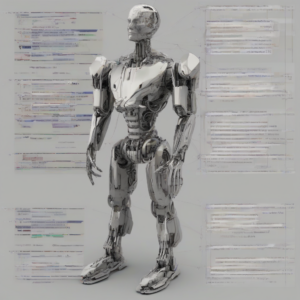Revolutionizing Manufacturing: Your Guide to Top Online Industrial Engineering Schools
The field of industrial engineering is experiencing a surge in demand, driven by the increasing need for optimization and efficiency in manufacturing and various other industries. This demand, coupled with the flexibility and accessibility of online education, has led to a proliferation of excellent online industrial engineering programs. This comprehensive guide explores the benefits of online learning in this field, examines key factors to consider when choosing a program, and highlights some of the leading online industrial engineering schools.
Benefits of Online Industrial Engineering Programs
- Flexibility and Convenience: Online learning offers unparalleled flexibility. Students can access course materials and participate in classes at their own pace and convenience, balancing their studies with work, family, and other commitments.
- Accessibility: Geographic location is no longer a barrier. Students from anywhere in the world can access top-tier industrial engineering education regardless of their proximity to traditional universities.
- Affordability: Online programs often come with lower tuition fees and reduced expenses associated with commuting and accommodation, making them a more cost-effective option for many.
- Technological Proficiency: Online programs necessitate familiarity with various software and online tools, enhancing students’ technological skills – a crucial asset in the modern industrial engineering landscape.
- Diverse Learning Environment: Online programs attract a diverse student body from various backgrounds and experiences, enriching the learning experience through collaborative projects and peer interactions.
- Self-Paced Learning: The ability to learn at one’s own pace allows for deeper understanding and better retention of complex concepts.
Factors to Consider When Choosing an Online Industrial Engineering Program
Selecting the right online industrial engineering program is crucial for success. Consider these key factors:
- Accreditation: Ensure the program is accredited by a reputable organization, guaranteeing the quality and validity of the degree.
- Curriculum: Review the curriculum carefully to ensure it aligns with your career goals and interests. Look for programs that cover relevant areas such as operations research, supply chain management, quality control, and simulation.
- Faculty Expertise: Research the faculty’s credentials, publications, and industry experience. A strong faculty can significantly enhance the learning experience.
- Support Services: Inquire about the availability of academic advising, career services, and technical support. A supportive learning environment is crucial for online success.
- Technology and Platform: Assess the quality of the learning management system (LMS) and the technological infrastructure supporting the program. A user-friendly and reliable platform is essential for a positive learning experience.
- Networking Opportunities: Look for programs that offer opportunities to connect with peers, faculty, and industry professionals through online forums, virtual events, or networking platforms.
- Career Services: A strong career services department can help you secure internships and jobs after graduation. Inquire about their services, including resume building, job search assistance, and networking events.
- Program Length and Cost: Compare the program length and cost of different programs to determine the best fit for your budget and timeframe.
- Flexibility: Evaluate the program’s flexibility in terms of course scheduling, assignments, and deadlines. Consider the level of self-discipline required for online learning.
Top Online Industrial Engineering Schools (Examples – Further Research Required)
The following is a sample list of institutions that *may* offer online industrial engineering programs. It is crucial to conduct thorough research on each institution’s specific offerings, accreditation, and program details before applying. This list is not exhaustive and does not represent an endorsement.
- [University Name 1]: Research their online program offerings, accreditation status, and faculty expertise.
- [University Name 2]: Investigate their curriculum, learning platform, and support services for online students.
- [University Name 3]: Check their accreditation, faculty profiles, and career services to assess the program’s value.
- [University Name 4]: Explore their online program structure, course content, and learning resources available.
- [University Name 5]: Examine their admission requirements, tuition fees, and financial aid options for online students.
- [University Name 6]: Evaluate the program’s emphasis on practical application, project-based learning, and industry collaborations.
- [University Name 7]: Analyze student reviews and testimonials to understand the overall learning experience.
- [University Name 8]: Assess the program’s alignment with industry standards and its potential to enhance career prospects.
- [University Name 9]: Check if the program offers specialized tracks or concentrations in areas such as manufacturing, healthcare, or supply chain.
- [University Name 10]: Verify the program’s reputation and its placement rate for graduates.
Specific Coursework to Expect in Online Industrial Engineering Programs
While specific courses may vary depending on the institution and program focus, common coursework in online industrial engineering programs typically includes:
- Engineering Statistics and Probability: Develop a strong foundation in statistical methods essential for data analysis and decision-making.
- Operations Research: Learn to apply mathematical and computational techniques to optimize complex systems.
- Supply Chain Management: Understand the principles of effective supply chain design, planning, and control.
- Production Planning and Control: Master techniques for managing production processes and ensuring efficient resource allocation.
- Quality Control and Improvement: Learn about statistical process control (SPC) and Six Sigma methodologies to improve product quality.
- Simulation and Modeling: Develop skills in using simulation software to model and analyze industrial systems.
- Ergonomics and Human Factors: Understand how to design work systems that are safe, efficient, and comfortable for workers.
- Facility Layout and Design: Learn the principles of designing efficient and effective factory layouts.
- Project Management: Acquire skills in planning, executing, and managing engineering projects.
- Data Analytics for Industrial Engineering: Develop proficiency in using data analytics tools to support decision-making in industrial settings.
Career Opportunities for Online Industrial Engineering Graduates
Graduates with online industrial engineering degrees have access to a wide range of rewarding career opportunities across various industries. These may include:
- Industrial Engineer: Analyze and improve manufacturing processes, optimizing efficiency and productivity.
- Supply Chain Analyst: Manage the flow of goods and services, optimizing logistics and reducing costs.
- Operations Manager: Oversee the day-to-day operations of a manufacturing facility or other industrial setting.
- Quality Control Engineer: Ensure that products meet specified quality standards and identify areas for improvement.
- Process Improvement Consultant: Help companies to identify and implement process improvements to enhance efficiency.
- Data Analyst: Analyze large datasets to identify trends and insights that can improve business decisions.
- Lean Six Sigma Consultant: Provide consulting services to help companies implement lean manufacturing and Six Sigma methodologies.
- Project Manager: Manage engineering projects from initiation to completion, ensuring they are on time and within budget.
- Operations Research Analyst: Apply mathematical models and algorithms to solve complex business problems.
- Manufacturing Engineer: Design, develop, and implement manufacturing processes and systems.





